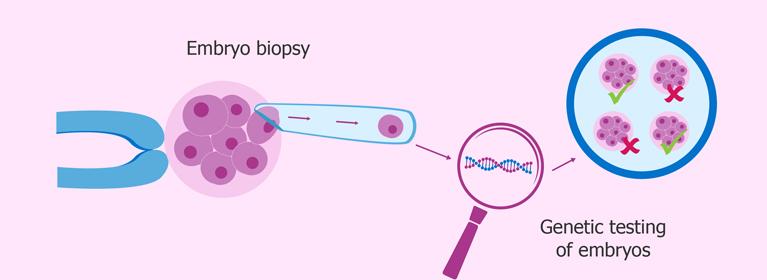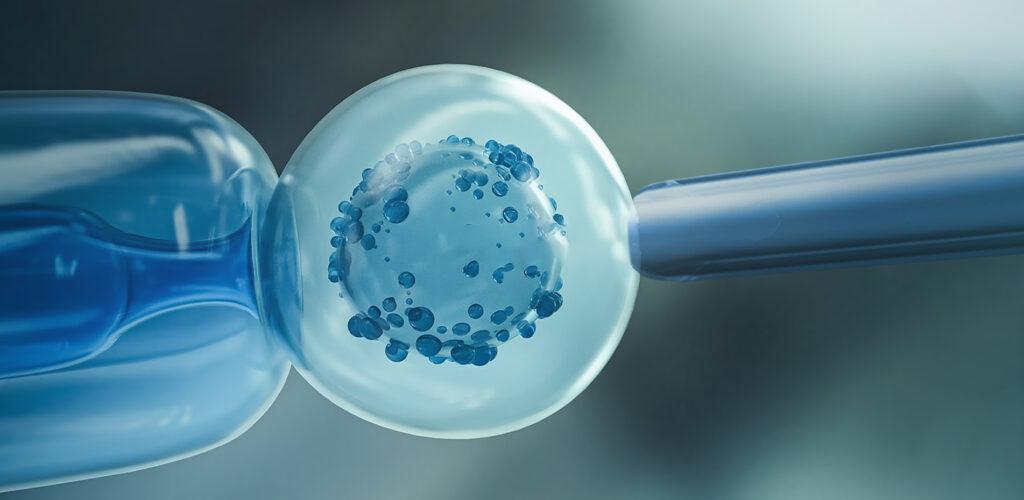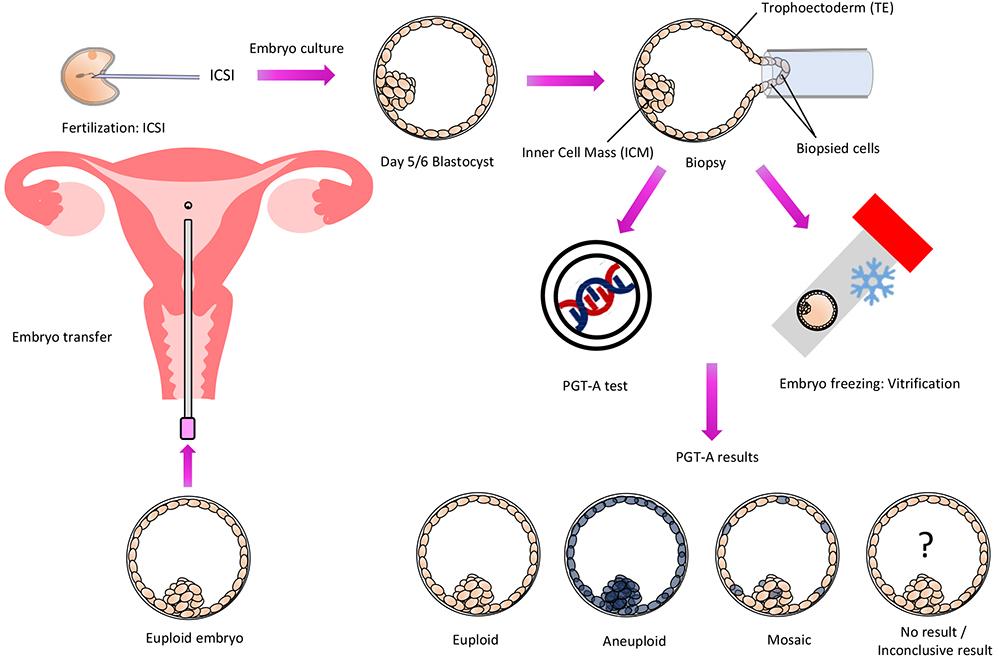Kanaa Fertility Centre is one of the top-rated clinics in Chennai providing PGT-A procedures. Our team of experts helps patients interested in knowing what is PGT-A and the benefits of PGT-A procedure before the treatment. Book Now!
Preimplantation genetic testing entails sampling a few cells from the trophoectoderm of a blastocyst and having them genetically analyzed. This procedure identifies which embryos are chromosomally normal and transferable. Embryo genetic testing through PGT-A enables physicians to select embryos with the highest chance for successful implantation while minimizing miscarriage risk.

PGT-A testing is conducted to:
It is especially beneficial for couples struggling with infertility, maternal age, or repeat implantation failure.

The process of IVF genetic testing involves:
Mosaicism is the presence of more than one type of cell in the same embryo — both euploid and aneuploid. This may lead to false positive or false negative results depending on which cells are sampled during the biopsy. PGT-A testing accounts for this, and genetic counseling is recommended for result interpretation.
PGT-A IVF is recommended for:

Although pgta testing is safe and minimally invasive, patients should consider:
PGT-A testing can significantly enhance IVF success by transferring genetically normal embryos. At Kanaa Fertility Centre:
Our advanced pgta IVF lab and experienced embryologists ensure accurate genetic screening, improving success for couples planning a family.
Pre implantation genetic testing for aneuploidy refers to a process in which a few cells from the tropho ectoderm of the blastocyst are biopsied and sent for genetic analysis
Why is it done?
This will identify if the embryo is genetically normal (euploid) or genetically abnormal(aneuploid)
The embryo is formed by the process of IVF or ICSI as usual and allowed to grow till day 5.
Then a few cells (about 5-10) are removed by use of laser and sent for genetic analysis
It is the condition where more than one type of cells are present in the same embryo-that is both euploid and aneuploid cells hence there maybe the chance for false positive or false negative results depending on which cells were taken in the biopsy
It is advised for mainly older age couples, recurrent implantation failures, recurrent pregnancy loss. testing for specific gene disorders which run in the family-this is called as PGT-M.
Typically, results are available within a few days to a week after the embryo biopsy, depending on the lab and technology used.
Yes, when performed by skilled embryologists, the biopsy procedure is minimally invasive and safe, with negligible risk to the embryo’s development.
While PGT-A testing significantly improves chances by selecting euploid embryos, no test guarantees 100% success. IVF outcomes also depend on maternal health, uterine environment, and other factors.
PGT-A is incorporated during the embryo culture period (Day 5–6). While results may require embryo freezing for transfer in some cases, this does not significantly delay the overall treatment timeline.
PGT-A screens for chromosomal abnormalities (aneuploidy). For specific inherited single-gene disorders, PGT-M is used.
Yes, by identifying and selecting euploid embryos for transfer, PGT-A IVF reduces the likelihood of miscarriage related to chromosomal abnormalities.
The embryo biopsy is performed in the lab on the blastocyst; there is no pain for the patient. Standard IVF monitoring procedures may involve mild discomfort from blood draws or egg retrieval, but the PGT-A testing itself is not painful.
PGT-A is preimplantation, performed before embryo transfer, whereas prenatal genetic tests are performed on embryos or fetuses after implantation or during pregnancy.